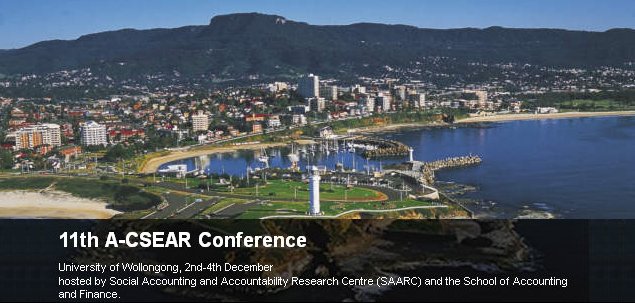Location
Bld 67.101
Start Date
4-12-2012 10:30 AM
End Date
4-12-2012 11:30 AM
Description
Socially responsible investment (SRI) represents the method of investment that consider the impact (good or bad) of investment decisions on social, ethics, and/or environment within the context of rigorous financial analysis. Despite the evidence of an increasing interest among academics and industry players on SRI, the understanding of the psychological aspect of decision-making behaviour of SRI investors is still incomplete. Currently, no published evidence has been found in the context of Malaysian investors‘ decision – making behaviour regarding SRI. Thus, this study aims to examine the role of intention, attitude, subjective norms, perceived behavioural control and moral norm in explaining SRI behaviour by investors in Malaysia. The underlying framework is the Theory of Planned Behaviour (TpB) that has been modified to incorporate moral norm as an additional explanatory variable. Studies that apply TpB in their measurement of behaviour indicate a mix of explanations for the relationship of constructs (i.e. - impact of attitude and moral norm) that influence behaviour through intention which warrant further examinations. Previous studies on SRI are extended by examining the role of intention in improving the relationships of TpB‘s attributes on behaviour. This study uses Structural Equation Modelling (SEM) to ascertain the causal relationships between the variables and whether these relationships could be improved by intention as a mediator. The results based on a questionnaire survey of Malaysian investors suggest that attitude, subjective norm and moral norm have positive effect on intention which in turn positively affects behaviour towards SRI. The relationship for attitude, subjective norm, and moral norm to behaviour is improved significantly by intention as a mediator. Based on squared multiple correlations (R²), it is found that the final structural model could explain 46% of the variance in intention and 50% of the variance in behaviour. These results suggest that, together with social, ethical and environmental issues (SEE) and financial goals, SRI providers and policy makers should also consider the influence of social pressure from investors‘ friends and relatives in their SRI decision making. Investors‘ personal standards are also found to influence the intention and behaviour to invest in SRI. Furthermore the results of this study yielded critical information and insights that will enable Malaysian authorities as well as fund management companies to launch effective marketing strategies and develop SRI products.
Socially Responsible Investment in Malaysia: Behavioural Framework in Evaluating Investors’ Decision Making Process
Bld 67.101
Socially responsible investment (SRI) represents the method of investment that consider the impact (good or bad) of investment decisions on social, ethics, and/or environment within the context of rigorous financial analysis. Despite the evidence of an increasing interest among academics and industry players on SRI, the understanding of the psychological aspect of decision-making behaviour of SRI investors is still incomplete. Currently, no published evidence has been found in the context of Malaysian investors‘ decision – making behaviour regarding SRI. Thus, this study aims to examine the role of intention, attitude, subjective norms, perceived behavioural control and moral norm in explaining SRI behaviour by investors in Malaysia. The underlying framework is the Theory of Planned Behaviour (TpB) that has been modified to incorporate moral norm as an additional explanatory variable. Studies that apply TpB in their measurement of behaviour indicate a mix of explanations for the relationship of constructs (i.e. - impact of attitude and moral norm) that influence behaviour through intention which warrant further examinations. Previous studies on SRI are extended by examining the role of intention in improving the relationships of TpB‘s attributes on behaviour. This study uses Structural Equation Modelling (SEM) to ascertain the causal relationships between the variables and whether these relationships could be improved by intention as a mediator. The results based on a questionnaire survey of Malaysian investors suggest that attitude, subjective norm and moral norm have positive effect on intention which in turn positively affects behaviour towards SRI. The relationship for attitude, subjective norm, and moral norm to behaviour is improved significantly by intention as a mediator. Based on squared multiple correlations (R²), it is found that the final structural model could explain 46% of the variance in intention and 50% of the variance in behaviour. These results suggest that, together with social, ethical and environmental issues (SEE) and financial goals, SRI providers and policy makers should also consider the influence of social pressure from investors‘ friends and relatives in their SRI decision making. Investors‘ personal standards are also found to influence the intention and behaviour to invest in SRI. Furthermore the results of this study yielded critical information and insights that will enable Malaysian authorities as well as fund management companies to launch effective marketing strategies and develop SRI products.


